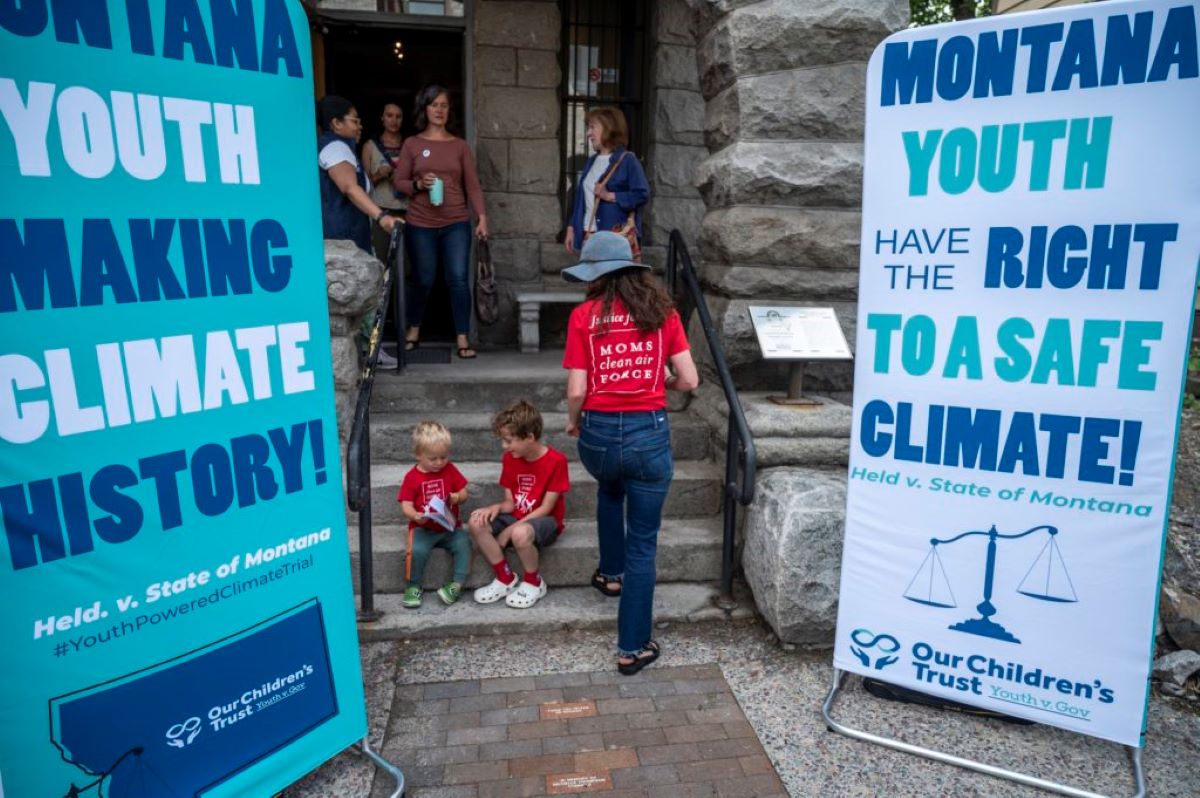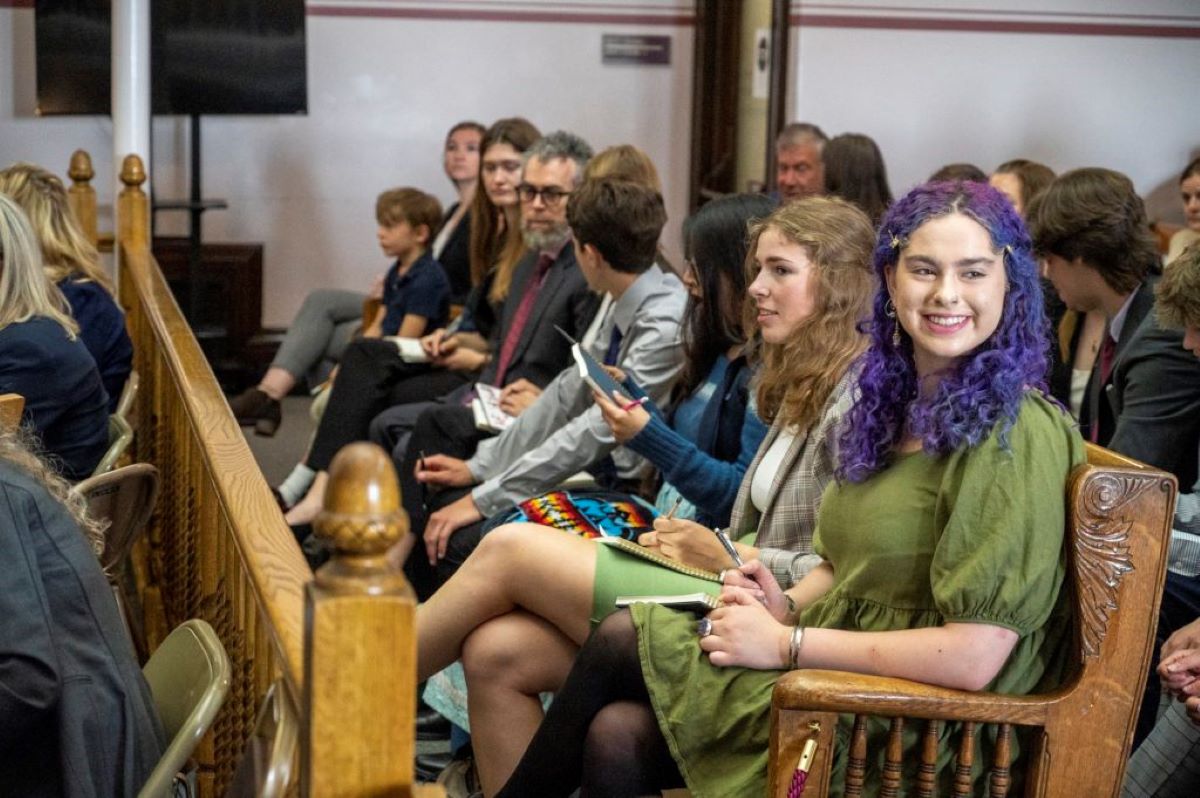A landmark climate change trial is set to commence on Monday in Montana’s capital, featuring 16 young residents who claim that state officials have violated their constitutional rights to a healthy environment.
Filed in March 2020, the lawsuit, Held v Montana, represents the first constitutional climate trial in U.S. history.
“We’re asking the government and the courts to fulfill their duty to protect us, along with the rest of Montana’s citizens and our beautiful home state; this case is a significant opportunity for the state to lead in securing a safe, prosperous future for Montana,” said Grace Gibson-Snyder, a 19-year-old plaintiff.
Advocates hope this trial could set a precedent for similar cases and inspire legal action in other states.
Since 1972, the state’s constitution has guaranteed that “the state and each person shall maintain and improve a clean and healthful environment in Montana for present and future generations.” The plaintiffs argue that by supporting fossil fuels, the state has failed to uphold this duty.
“I’m excited about this unique chance to present the full story of how the government’s promotion of fossil fuel development exacerbates climate change and harms me and the other youth plaintiffs,” Gibson-Snyder added.
Jim Nelson, a retired Montana Supreme Court justice, asserts that Montana has “never, never” fulfilled its obligation to maintain a healthy environment.
He pointed out that the state legislature recently passed two dozen bills that will “adversely affect the environment.”
“The legislature basically thumbed its nose at these constitutional provisions,” Nelson said.
A favorable judgment could, according to Nelson, “force the legislature and state officials to finally comply with the constitution.”
The trial in Helena, Montana, is scheduled to run from June 12 to June 23. A ruling is expected sometime after the trial concludes.

“Given the urgency of the climate crisis, we hope the judge will make a decision promptly, but we understand she has a lot of evidence, testimony, and research to consider,” said Philip Gregory, an attorney for the plaintiffs. “So it could take weeks or even months.”
The lawsuit specifically challenges two Montana statutes as unconstitutional: the state energy policy, which governs statewide energy production and use, and a section of the Montana Environmental Policy Act that prevents the state from considering the climate impact of its energy economy.
Earlier this year, state lawmakers repealed the state energy policy, which attorneys involved in the case claim was an attempt to avoid the trial.
However, in May, Judge Kathy Seeley of the First Judicial District Court, who will preside over the case, rejected the state’s motion to dismiss the suit, allowing the trial to proceed.
“The judge allowing the case to go to trial is always a win,” said Gregory, expressing his excitement and honor at the opportunity to present the case in court.
Last week, the Montana Supreme Court rejected a final attempt by the state attorney general to delay the trial, clearing the way for it to begin on Monday as scheduled.
“The fact that we are going to trial is empowering because it shows that the courts are willing to hold the government accountable,” said Gibson-Snyder.
Held v Montana follows the 2015 case Juliana v United States, where 21 young plaintiffs sued the U.S. government for violating their constitutional rights to life, liberty, and property by enacting pro-fossil fuel policies that contributed to climate change.
Recently, a U.S. District Court ruled in favor of the youth plaintiffs, allowing their claims to be heard in open court.
Both the federal case and the Montana lawsuit were filed by the non-profit law firm Our Children’s Trust. The firm is also pursuing similar state constitutional rights litigation in four other states.
One of these cases, brought by Hawaii youth plaintiffs, is expected to go to trial, possibly as soon as this fall.







Leave a Reply